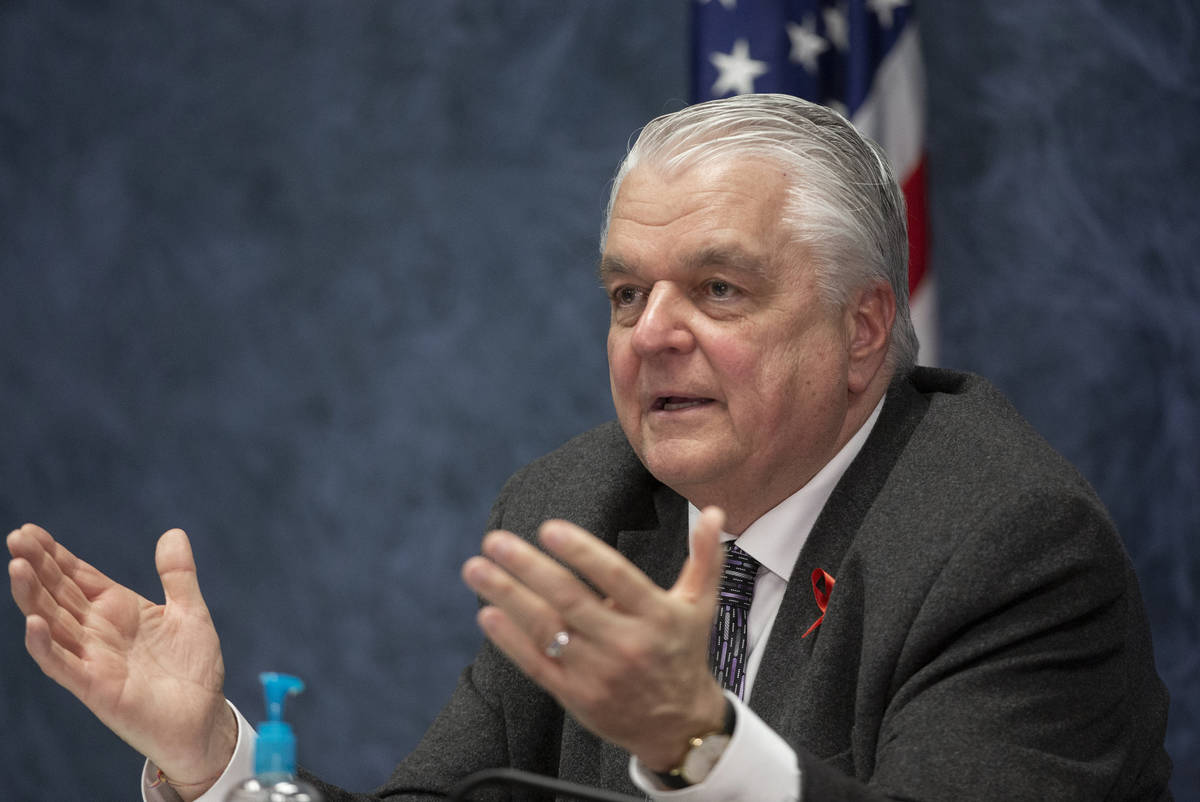
Nevada faces even larger budget cuts
by Colton LochheadCARSON CITY —The strain on state budgets caused by the COVID-19 pandemic is expected to be even worse than initially anticipated, as Gov. Steve Sisolak’s office is asking state agencies to prepare for additional cuts in the coming fiscal year.
In an email sent Thursday night, Sisolak’s Chief of Staff Michelle White told state department heads and administrators from all agencies to submit additional budget cuts of 5 percent by Monday “in part to reduce the number of potential layoffs, according to a copy of the email obtained by the Review-Journal.
“This information will be considered in the decision making process for closing the projected deficit,” White said in the email.
The additional cuts come after the governor’s office last month asked agencies to submit cuts to their budget by 4 percent for the current fiscal year, which ends on June 30, and between 6 and 14 percent for fiscal year 2021, which at the high end would total about $700 million in savings. In a memo sent in April requesting the first round of proposed agency cuts, the governor’s finance office noted that the recommended cuts could change depending on the severity of the economic disruption caused by the pandemic.
The state is predicting budget shortfalls of between $741 and $911 million for the current fiscal year, and “equally significant shortfalls” in fiscal year 2021, said Meghin Delaney, Sisolak’s spokeswoman, in a statement Friday confirming the request for additional proposed cuts.
“As the governor said in his letter requesting potential reductions, budget decisions will be made with an eye toward prioritizing state resources to protect the health and safety of our citizens and put Nevada on a path to recovery,” Delaney said. “At this time, the governor’s office is asking agencies to revisit their budgets for additional potential reductions to ensure all options are available for consideration.”
Delaney said the governor’s office is finalizing the budget reductions for the current fiscal year to then send to the Legislature’s Interim Finance Committee.
“The governor continues to work with legislative leadership on these very difficult decisions that impact state agencies and the Nevadans they serve, in addition to the next steps on addressing the (fiscal year) 2021 shortfall,” Delaney said.
Nevada’s economy has been ravaged by the coronavirus pandemic and ensuing shutdown that forced casinos and other businesses deemed nonessential to shut down for two months after a governor’s directive that was issued in mid-March.
That led to unprecedented levels of job loss for Nevada, with the state’s unemployment rate reaching 28.2 percent in the month of April, a rate that was not only Nevada’s highest ever, but was “the highest rate that any state has ever seen,” according to the chief economist for the state’s Department of Employment, Training and Rehabilitation.
Businesses have started to reopen this month within certain parameters as the state has started to lift some restrictions, starting with allowing restaurants to have dine-in service and most retail shops to open their doors on May 9. The second wave of reopenings started Friday with most other businesses outside of gaming, strip clubs, nightclubs and brothels being allowed to reopen, again with restrictions.
Gaming — which has been effectively shuttered since March 17, but is set to reopen on June 4 — was hit particularly hard with revenues for the month of April dropping 99.6 percent. Gaming and sales taxes combined make up more than 46 percent of Nevada’s general fund revenue.
With no gaming, and combined with travel restrictions advisories in place in Nevada and other states, the state also saw a drastic decline in vistors last month. Las Vegas’ McCarran International Airport reported a 96 percent decrease in passenger volume in April.
The state has received federal funding from the CARES Act to help offset the costs of combating the pandemic. Earlier this month lawmakers also moved to tap into Nevada’s rainy day fund, and approved the transfer of the entire $401 million reserve balance to the state’s general fund to help fill the budget deficits.